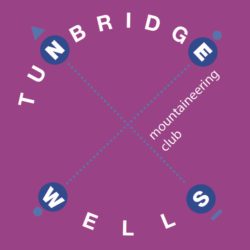John M has asked me to put pen to paper following my attendance at the BMC’s Snowdonia First Aid BMC Club weekend – REC Level 2 First Aid course.
John circulated an e-mail from the BMC for the course back in September and as a First Aid course is something I have wanted to do for quite a few years, I could not make any more excuses to myself; so I sent an application in to Martin Koscis at the BMC.
A few weeks later a confirmation e-mail turned up and a week before the weekend at the end on November, some further details from Martin with a note to say he was off to Utah on a climbing holiday, lucky Devil!
The course is the first of a number that the BMC are arranging over the next year, so a few teething troubles may have been expected. The first related to the location of the accommodation, this was the Karabiner club hut at Llanberis, however, the location was obscure high above Lyn Padarn on the opposite shore from Llanberis and the Karabiner club’s information was sketchy unless you had the correct Landranger OS map! I was not the only one to have problems and it turned out no-one from the BMC had clarified if the hut was booked for the whole weekend or who had the keys either; turning up on Friday meant this was fairly important to know, but with practically the whole BMC office away on leave, no-one could help. Despite not knowing about the BMC’s booking arrangements, Helen from the training organisation (Helen & Steve Howe at Snowdonia First Aid) www.snowdoniafirstaid.co.uk stepped in to help and I picked up the keys for the hut on Friday evening, then off to the pub for a beer. The uncertainties were apparently too much for some and as a result there were a few last minute cancellations, but their loss, as the slight disorganisation was outweighed by the quality of the training.
The course that Helen and Steve provided is based on the Rescue Emergency Care First Aid Training system started by Dr Bob Phillips www.recfirstaid.net with a bias towards more practical based outdoor training. The stated aim is to “keep it simple and remember the essentials when cold, fatigued and under pressure from the changing climate, fading light, stressed bystanders and hostile environment”.
Most of the other course attendees were guides, climbing or Kayak Instructors needing dedicated outdoor First aid training for their qualifications, a few, like me were just there to learn a new skill for it’s own sake.
Saturday comprised back to basics First Aid mainly indoors in the hut, including the mantra DR-ABCDE, which will I am sure be familiar to anyone who’s done a First Aid course before. A fairly brisk pace of training ensued in the order to cover the breadth needed. The REC course run by Snowdonia First Aid is usually a 3 day course “Mountain First Aid”, but needed to at least cover the training needed for Emergency First Aid for MLTB, SPA and RYA qualifications.
Essential gear listed on the paperwork for the weekend included walking boots, full waterproofs and head torch, late in the day I found out why, out onto the hill we went to act out a few scenarios. The group split up into pre-briefed “casualties” and the rest split into groups of first aiders who had to deal with the various feigned injuries putting into practice what was learned during the day. A very illuminating experience, even knowing it was an exercise.
Something I learned that is well worth knowing was getting help when you may not have a mobile phone signal to call 999. Whilst most of us may be aware that for 999 or 112 emergency calls, any networks can be used, I am sure we have all been up a mountain when you can still get texts but no phone signal. The fact is that the 999 service will respond to text message calls for help but you MUST pre-register your phone number. Simply text “register” to 999 and you’ll get a confirmation text back by return, respond to that and you have a text capability to call for help.……… DO IT NOW; you never know when you or someone else might need it.
Sunday included treatment for injuries common in the mountains; fractures, head injuries, other common injuries and environmental issues. Later on in the afternoon we were outside again. The weather was helpful (sic) as the wind was blowing a hooley and raining, great………not. At least it wasn’t snowing!
“Doing” certainly helped the memory rather than bookwork, and highlighted the need to keep to the basics.
Quite an eye opener was being given a climbing harness a couple of walking poles and a roll of Gaffa tape and coming up with a reliable method of applying traction to a simulated broken femur with only that you are carrying and what you can find around you.
Practical guidance was given about moving or not moving injured people and we were reminded about priorities learned the day before.
As a consequence of the abbreviated nature of the course, more “urban” emergencies were rather skimmed through, but good course notes were provided for reading up, refreshers and revision on at a later date. Practical help was explained and we still had time at the end of the day to deal with the Tick problem and what to do with them and why.
I have to say I really enjoyed the weekend and the training provided by Steve and Helen was excellent. It was quite intensive and surprisingly tiring, but well worth the effort.
The BMC http://www.thebmc.co.uk is planning to run a number of similar courses in 2012, so keep your ears open. If you haven’t done a First Aid course before and you get the chance I can thoroughly recommend it.

